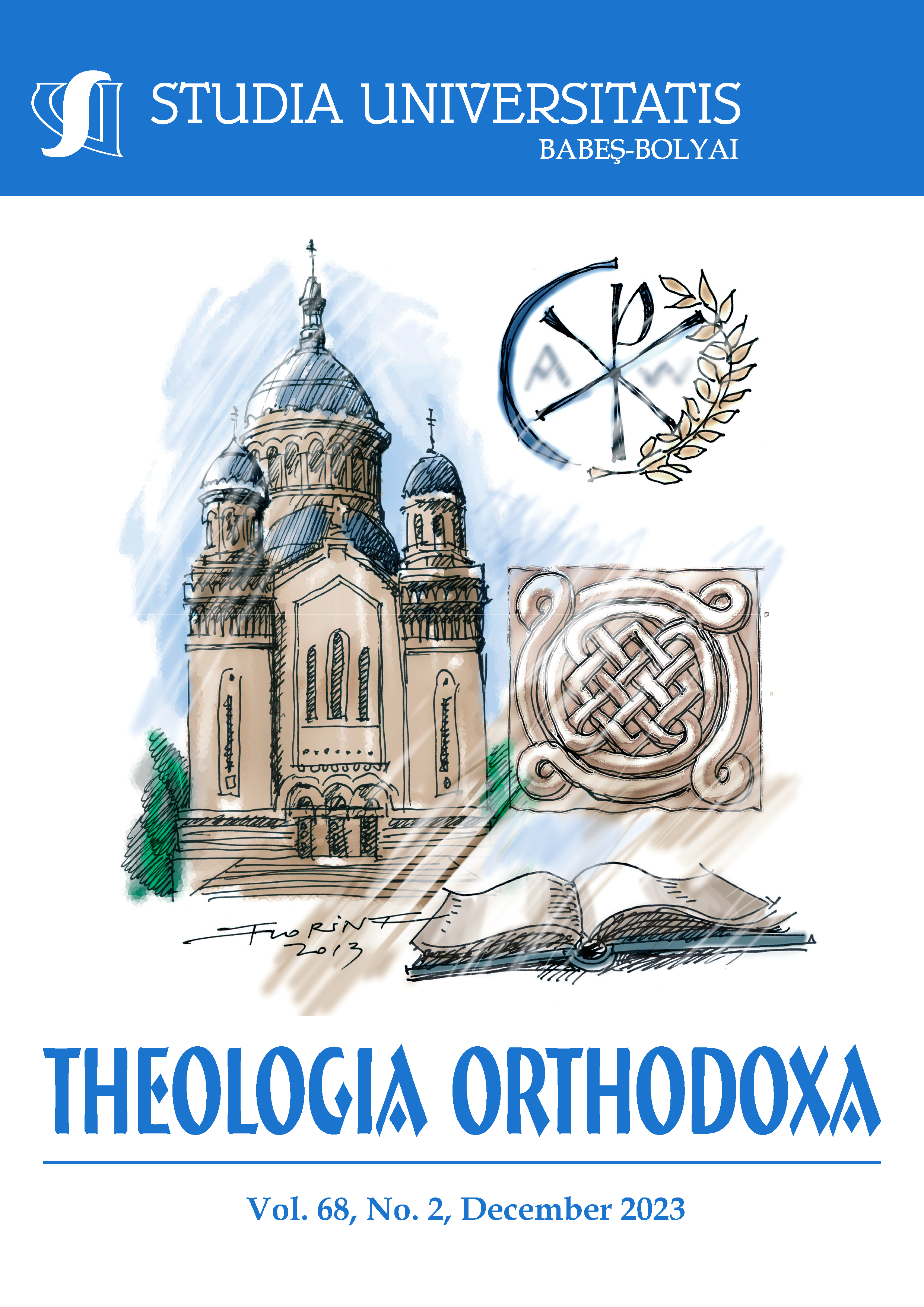“The Seat of Moses” – The Responsibility of Interpreting the Law in Matthew’s Gospel
DOI:
https://doi.org/10.24193/subbto.2023.2.02Keywords:
The Seat of Moses, Gospel of Matthew, Jesus, Law, Scribes, PhariseesAbstract
The presentation will analyse the possible interpretative solutions proposed by the exegetes to the crux interpretum of Matthew 23:2-3. The Saviour's statement that the scribes and Pharisees “sit on the seat of Moses” is not intended to be an endorsement of their authority to interpret the Law, but, recognizing the reality in which the disciples lived and were to serve, they must fulfil and learn the commandments, they must know what Moses says. The scribes and Pharisees, although they were the keepers of the Torah in the social and religious environment in which these disciples lived, no longer had the authority to teach because it was given to the Church.
References
Andrews, Edward. Introduction to the Text of the Old Testament: From the Authors and Scribes to the Modern Critical Text. Cambridge: Christian Publishing House, 2023.
Bud, Paula. “Considerations on the Shabbat before the Law. An Attempt to reconcile the Opposites.” Romanian Orthodox Old Testament Studies 1 (2020): 11-22.
Craigie, P.C. The Book of Deuteronomy. Grand Rapids: Eerdmans, 1976.
Evans, Craig, Of Scribes and Sages: Early Jewish Interpretation and Transmission of Scripture, vol 2. London/New York: T&T Clarck International, 2004.
Fărăgău, Beniamin. Nădejde în întuneric. Vol. I. Cluj-Napoca: Logos, 1992.
France, R.T. The Gospel According to Matthew. Leichester: IVP, 1985.
Franciscus. Address to teachers and students of the Pontifical Bible Institute and participants in the meeting “Jesus and the Pharisees: An Interdisciplinary Reexamination” (9 May 2019). https://infosapientia.ro/stiri/papa-francisc/discurs-adresat-profesorilor-si-studentilor-de-la-institutul-pontifical-biblic-si-participantilor-la-intalnirea-isus-si-fariseii-o-reexaminare-interdisciplinara-9-mai-2019/. Accessed 10 November 2023.
Hill, David. The Gospel of Matthew. Grand Rapids: Eerdmans, 1972.
Iatan, Cristinel. “Teach me, and I will be silent” (Job 6:24). Scribes, scribes and teachers in the period of the two Temples.” Romanian Orthodox Old Testament Studies 1 (2022): 62-75.
John Chrysostom. “According to St. Matthew.” Translated by George Prevost and M. B. Riddle. In The Nicene and Post-Nicene Fathers, Vol. X. Oak Harbor: Logos Research Systems, 1997.
Neusner, Jacob. Mishnah, Ghittin, 9.10. New York: Oxford University Press, 1988.
Powell, Mark Allan. “Do and Keep what Moses Says (Matthew 23:2-7).” Journal of Biblical Literature 114 (1995): 419-435.
Remaud, Michel. Creștini în fața lui Israel. Slujitor al lui Dumnezeu. Târgu Lăpuș: Galaxia Gutenberg, 2018.
Ridderbos, H.N. Matthew. Translated by Ray Togtman. Grand Rapids, Michigan: Regency Reference Library, 1987.
Schreiner, Patrick. Matthew, Disciple and Scribe. The First Gospel and Its Portrait of Jesus. Grand Rapids: Baker Academic, 2019.
Semen, Petre. “Moses’ second experience with the divine.” Romanian Orthodox Old Testament Studies 1 (2009): 42-62.
Stott, John R.W. The Message of the Sermon on the Mount. Leichester: IVP, 2020.
Ulrich, Eugene, Wright, John, Davies, Philip, Carroll, Robert (eds.). Priests, Prophets and Scribes. Essays on the Formation and Heritage of Second Temple Judaism in Honour of Joseph Blenkinsopp. Sheffield: Sheffield Academic Press, 1992.
Downloads
Published
How to Cite
Issue
Section
License
Copyright (c) 2023 Studia Universitatis Babeș-Bolyai Theologia Orthodoxa

This work is licensed under a Creative Commons Attribution-NonCommercial-NoDerivatives 4.0 International License.





 ISSN (print): 1224-0869, ISSN (online): 2065-9474, ISSN-L: 2065-9474
ISSN (print): 1224-0869, ISSN (online): 2065-9474, ISSN-L: 2065-9474